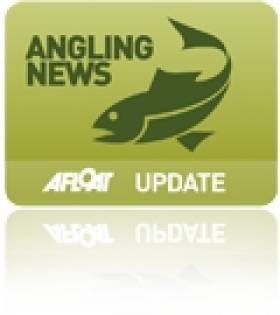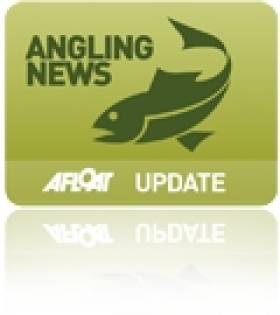Displaying items by tag: Mulkear River
Flash Floods on Mulkear River Disrupt Angling
#mulkear – Inland Fisheries Ireland (IFI) is today (31.07.14) continuing to investigate the polluted condition of the Mulkear River and its tributary, the Bilboa River. These rivers form part of the Mulkear Special Area of Conservation and are essential nursery and spawning areas for Salmon, Trout and Lamprey.
At the present time, the Mulkear River is extremely discoloured by suspended solids, disrupting angling and severely curtailing other uses.
IFI staff has identified the source of pollution as being a result of last week's flash flooding, which caused a high level of suspended solids from the Gortnageragh River, a tributary of the Bilboa River located a few miles north of Doon County Limerick, to enter into the system.
The Gortnageragh River burst its banks in numerous locations and a large number of trees were washed away causing the River to be dammed at several locations. This further exacerbated the situation, as numerous new river channels are now forming, causing silt, clay, sand and gravel to be washed downstream as a heavy load of suspended solids. At one point, a new riverbed has been scoured out to a depth of approximately one metre. This is the source of discolouration in the water and will be impacting on spawning beds and nursery areas for salmon and trout.
IFI is liaising with local authorities and ESB, the fishery owner, with a view to seeing what steps can be taken to alleviate the problem. IFI believes that the removal of the obstructions should aid the river in reverting to the original river bed.
Inland Fisheries Ireland (IFI) has a confidential 24 hour hotline number to enable members of the general public to report incidents - 1890 34 74 24 or 1890 FISH 24. This phone line is designed to encourage the reporting of incidents of water pollution, illegal fishing and invasive species.
Man Prosecuted for Illegal Fishing on Mulkear River
#ANGLING - A man has been convicted and fined at Limerick District Court for illegally fishing without a permit on the Mulkear River in another successful prosecution for Inland Fisheries Ireland (IFI).
Last June, fisheries officers with IFI were carrying out a routine licence and permit patrol on the Mulkear River in the east of Co Limerick, in an area locally known as the 'Long Field'. One individual - a Mr Storan - was angling without a permit or State licence and was issued with an on-the-spot fine which had to be paid within 21 days.
The fine remained unpaid, and following several court proceedings and a bench warrant, the case was heard on 17 September and Mr Storan was convicted under Section 178 (Unauthorised entry on a several fishery). He was fined €250 and instructed to pay €400 in expenses to IFI.
IFI said: "This successful outcome was the part of the commitment of Inland Fisheries Ireland to focus on the protection of fish, especially during a time of resource constraints."
The Mulkear River is one of only two rivers which meet its salmon conservation limit in the Shannon River Basin District and angling is therefore permitted for wild salmon, subject to a licence and quota.
According to IFI, currently the river "holds excellent stocks of wild salmon, but incidents such as these are extremely detrimental and will threaten the integrity of the stocks in the river."
IFI's Limerick director Amanda Mooney commented: “This case could have been dealt with through our on-the-spot fine procedures but the individual chose to go to court where the fine was much greater.
"Inland Fisheries Ireland is committed to the protection of our wild salmon stocks and follow through on all fisheries offences.”
IFI continue to run a 24/7 hotline where anyone can report illegal fishing activity at 1890 34 74 24 or for easier recall 1850 FISH 24.






























































